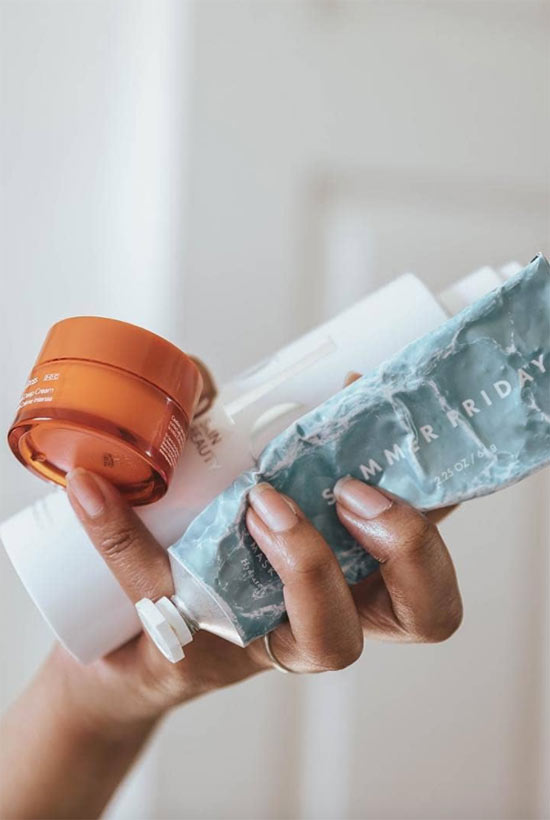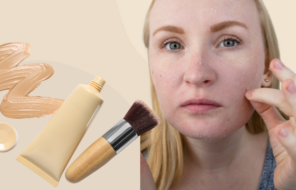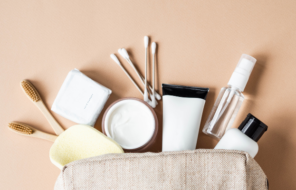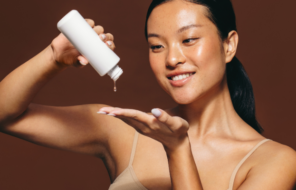- Collagen for skin is a humectant as a topical ingredient, occurring in creams, serums, and other treatments.
- It moisturizes the skin and visibly minimizes fine lines and wrinkles, making the skin look plumper.
- There are three types of collagen creams to choose from – those made with animal-derived collagen, ones with vegan alternatives, and collagen-supporting formulas.
Collagen creams are not something that would normally get me excited. Don’t get me wrong – collagen is critical for the skin! It’s just that the collagen I worry about is the stuff that’s already inside my body, not the stuff I can put on top of it. I dare say I was even anti-collagen creams before I dove deep into researching this article.
As it turns out, collagen creams are pretty great and absolutely deserving of some attention – especially if you have very dry skin! They hydrate and protect beautifully and often have extremely sumptuous textures and lovely ingredients. So today, I’m giving collagen creams credit where it’s due without overblowing their effects.
We’ll explain exactly how different types of collagen creams differ from one another. Then I’ll explain what collagen is and what it does for the skin. I’ll get into the types of collagen creams in more detail and finish off with some pros and cons as well as usage tips!
In this article:
- What Is Collagen for Skin and What Does It Do?
- Types of Collagen Creams
- Pros and Cons of Collagen for Skin
- How to Use Collagen Creams
What Is Collagen for Skin and What Does It Do?
Let’s start with what collagen is in the human body. If you’re not in the know, collagen is one of the building blocks of the skin. It’s the protein in the dermis that’s responsible for the firmness of the skin.
With age, our body slows down its collagen production, and as a result, the face begins to sag. These days, collagen for skin is available in creams and other topicals, and it’s also become a very popular supplement, which is a topic for a different article.
However, collagen is very different as a topical ingredient. When applied topically, collagen (like a lot of other amino acids) is a humectant, so it helps pull moisture into the skin. In other words, it’s a great moisturizing ingredient!
If you’re familiar with my writing, you know that I really love humectants – they have this magical ability to plump up the skin and make it glow beautifully! Collagen, sadly, doesn’t elicit my typical excitement about humectants.
The first reason I don’t get excited about is personal: collagen only exists in the living tissue of animals, so there are no vegetarian sources of it. If you’re not a vegetarian, this might not matter to you at all!
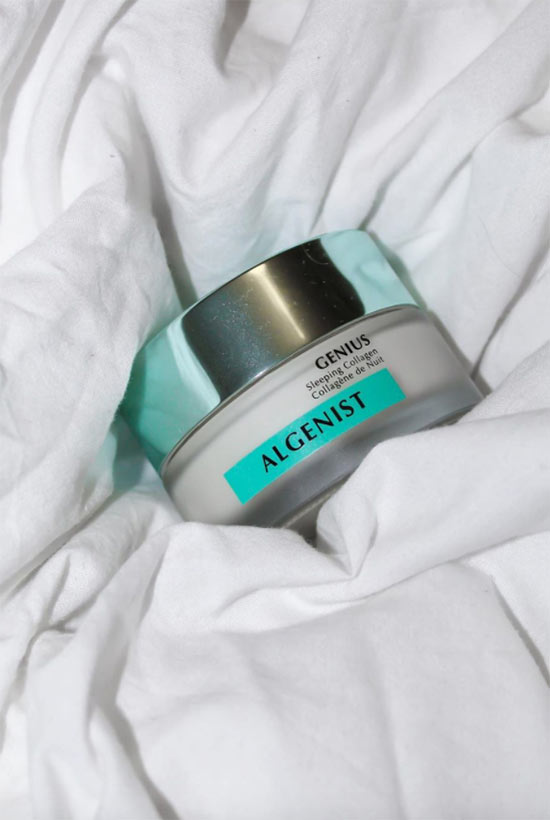
The collagen used in cosmetics is usually a byproduct of the meat industry, so I don’t think using it in cosmetics is any less ethical than other forms of meat consumption. Some brands rely on marine collagen, which is taken from fish, but once again, as a vegetarian, I’m not interested.
The second issue I have with collagen is the way it is marketed. Collagen creams, as a category, are seen as these intense anti-aging products that do miracles specifically on mature skin. This was especially the case 10-20 years ago when skincare was sometimes recommended to people based on age, and collagen creams would be the “40+” or “50+” option.
They were described as radically skin-firming or anti-wrinkle. Often, brands would imply that if your skin is losing collagen with age, somehow applying collagen topically would just re-up your collagen levels, which is BS pseudoscience of the highest order. That kind of marketing would be a little overblown even if it was applied to something that actually helps with collagen production, like retinol!
This kind of marketing also sets decent products up for failure because it raises consumers’ expectations to a level that can’t be met by a topical product, let alone a simple moisturizer!
Over the last few years, it seems like a lot of brands learned their lesson as consumers became more educated. Additionally, brands started moving away from animal-derived ingredients so as to make their products vegetarian and vegan-friendly. This gave rise to the next take on collagen creams, serums, and masks that we’ll explain next.
Types of Collagen Creams
Since so many brands have moved away from using animal-derived collagen in their products, there are now three distinct types of formulas you might see described as a “collagen cream” – those made with collagen, those with vegan alternatives, and collagen-supporting formulas. All three formulations tend to be quite creamy and rich, so they’re ideal for those with dry skin.
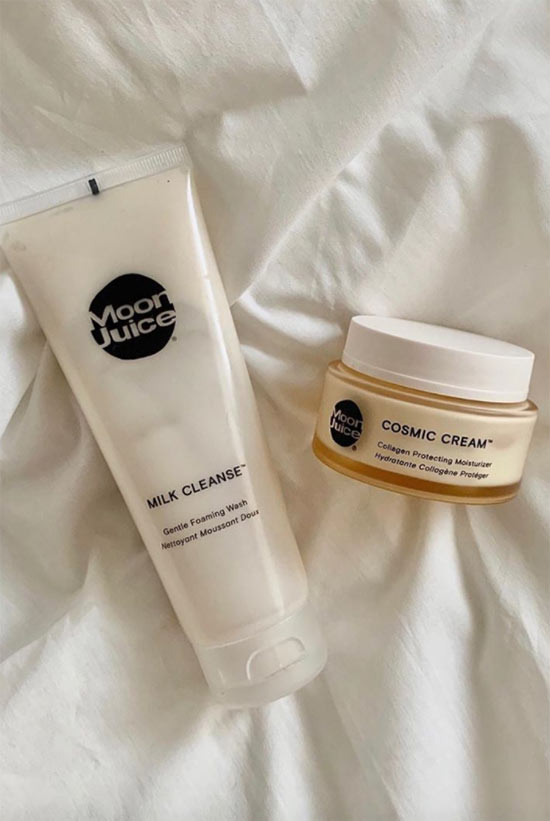
Made with Collagen
First things first are the OG collagen creams that include collagen in their formula. Normally, you would just see the word “collagen” listed in the ingredient list, usually near the beginning or about half-way through the ingredient list. In these formulas, collagen acts as a humectant, usually closer to the surface of the skin.
Some creams specifically use hydrolyzed collagen for skin. Hydrolyzed collagen amino acids are basically collagen molecules that have been broken down into small pieces. This allows it to penetrate into slightly lower levels of the epidermis, which hydrates the skin more thoroughly.
Another distinction you can occasionally see is “marine collagen,” which just means that the collagen was derived from fish or other sea creatures, which makes it suitable for fish-eaters.
Vegan Collagen Alternatives
The shift towards making vegan-friendly formulations led to the creation of a few collagen alternatives. Different brands found different collagen alternatives from acacia seyal gum to hybrids of amino acids from different plants. These ingredients have a similar humectant effect to collagen and similar skin feel, so they replace it in formulas.
Other brands use synthetically produced peptides that exist naturally as part of collagen’s structure. In other words, it’s a way of producing smaller amino acid sequences that are related to collagen.
Researchers have made headway in manufacturing vegan collagen through a process that involves genetically modified yeast and bacteria. We’ve seen “vegetable collagen” listed in some formulas, which might be this vegan alternative, or it might be something else – it’s not clear how many cosmetic companies are relying on this innovative process for their collagen.
Collagen-Supporting Ingredients
Finally, some creams called “collagen creams” are basically antioxidant moisturizers that protect the skin from the degrading effect of external stressors like sun exposure and pollution. They can include any kind of antioxidant, but the most popular formulations we’ve seen rely on different kinds of antioxidant-rich algae as well as on gentle vitamin C derivatives.
This is an instance where the term “collagen” is strictly added for marketing purposes since any antioxidant-rich cream will have the same protective effects. It’s also worth adding that while using such creams can be nice, having a daily sunscreen habit is a lot more important for preserving collagen levels in the skin.
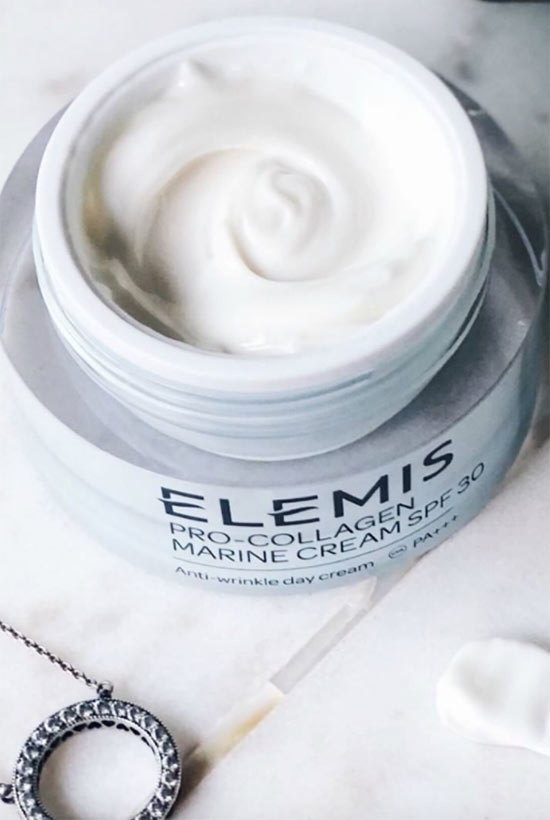
Pros and Cons of Collagen for Skin
Collagen creams are diverse and innocuous, but we still wanted to weigh their pros and cons to help you get a better understanding of them.
Pros
- Very hydrating and moisturizing
- Usually quite gentle
- Plump up skin to reduce the appearance of fine lines
Cons
- Real collagen is animal-derived
- Marketed with overblown claims
- Formulas are often too rich for oily or acne-prone skin.
How to Use Collagen Creams
Collagen creams are traditional moisturizers, so the best way to apply them is as you would a typical moisturizer.
- Use It at Night
They usually don’t contain SPF and have a fairly rich texture, so it’s better to save them for nighttime.
- Combine with Sunscreen
If your skin is very dry, you can use a collagen cream in the daytime under a sunscreen.
- Apply It to Clean Skin
Always apply your collagen cream to clean skin.
- Use It As a Final Step
Since collagen creams are often very occlusive, they’re fantastic as a final step after a multi-step routine of toners, serums, and essences.
- Apply in an Upward, Circular Massage
You can apply the collagen cream with your fingers in an upward, circular massage. This will get the blood flowing to the face and help to stimulate the skin.
- Press It
For sensitive skin, press the cream into your skin instead to avoid tugging or irritating it.
Photos via @kalei_lagunero, Instagram

